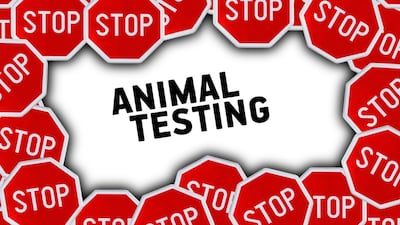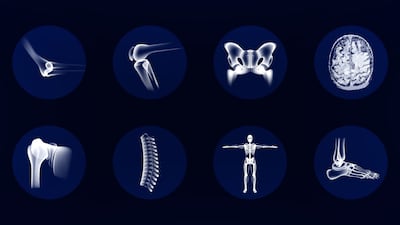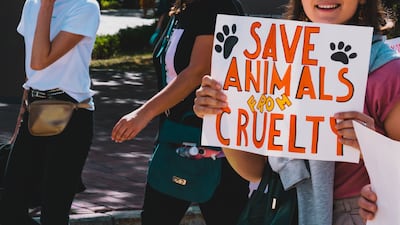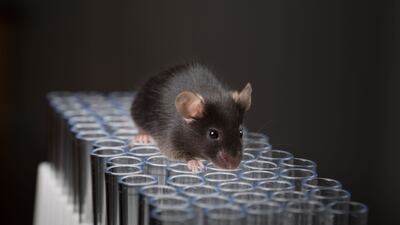Animal Testing
This week, two device testing labs in China landed FDA warning letters; refunds for 1Health.io clients; FDA AR/VR product list expands.
In addition to sustainability, Myers noted DEI and advancing alternatives to animal testing among key priorities for the group. “We have member companies that really lead the way on many of those. We want to be able to amplify their good work and their messaging, because they are good corporate citizens” and “it’s what consumers are demanding anyway,” he said in an interview.
The use of the RPT is to no longer be required in any text of the European Pharmacopoeia and medicine developers will have to select a suitable in vitro test to control the pyrogenicity of their product.
Animal advocacy group PETA claims documents recently made public on listening sessions between the US Food and Drug Administration and sunscreen manufacturers show FDA is ‘checking a box by pushing decades-old animal tests rather than using modern science’ to assess the safety of sunscreens, despite the agency’s claims that it is encouraging non-animal methods.
House appropriations subcommittee chair Andy Harris, R-MD, says the agency ignored several important factors in recommending that marijuana be reclassified as a Schedule III drug; Califf tells ranking member Sanford Bishop, D-GA, that although work is progressing on animal testing alternatives, 'we're a long way right now' from eliminating animal studies before first-in-human trials.
“Companies can innovate right now, and they have confidence in these tools, these [non-animal] approaches, and they feel they can put these products on the market safely,” said Erin Hill, CEO and president of the International Collaboration on Cosmetics Safety. “The holdup is that they can’t register these new products, because there’s a lack of confidence in the regulatory community.”
In the year since its establishment, the International Collaboration on Cosmetics Safety has worked to engage with regulators as they build frameworks for assessing cosmetic safety without animal tests. ICCS president and CEO Erin Hill discusses current challenges and what lies ahead.
Medtech Insight's News We're Watching highlights some recent business and R&D developments you may have missed. This week, Biosense Webster’s Varipulse PFA platform earned a CE mark; Biosense Webster also announced the start the pivotal IDE study of its Laminar left atrial appendage elimination system; the FDA approved Boston Scientific's Agent paclitaxel-coated balloon and cleared Medtronic's OsteoCool 2.0 bone ablation system; three papers in Science Robotics describe magnetically controlled vascular robots that could go places wires and catheters cannot.
Medtech Insight's News We're Watching highlights medtech industry developments we are following: LivaNova named a new CEO, Roche confirmed plans to launch a continuous glucose monitor, Virtual Incision sent its surgical robot into orbit, and Synchron announced a deal with Acquandas to advance its brain interface technology.
The US Food and Drug Administration has published draft guidance offering recommendations for premarket submissions for orthopedic devices that contain metallic or calcium phosphate coatings.
In its safety assessment of two prostaglandin analogues, the Expert Panel for Cosmetic Ingredient Safety determined that certain read-across data from potentially related ingredients were not enough to extrapolate and apply to a prostaglandin review. This and more from the panel's 4-5 December meeting.
Microphysiological systems such as organ-on-chip models could not only improve the translational success of drug candidates into the clinic, but also impact the 3Rs in non-clinical safety testing, according to the European Medicines Agency.
The Cosmetic Products Regulation’s “once groundbreaking” ban is now worthless, says PETA, which supported Symrise in two cases challenging animal testing required by the European Chemicals Agency for cosmetics-only ingredients under REACH. Cruelty Free Europe, the European Federation for Cosmetic Ingredients, and Unilever also intervened on Symrise’s behalf.
The European Food Safety Authority is evaluating new reproductive and developmental toxicity data published since it paused CBD novel food applications last year due to safety concerns, according to food law consultancy, Legal Foods.
FDA review staff consider the animal models used in development of US WorldMeds’ eflornithine for neuroblastoma to be translational to humans, even though this does not align with the definition in a September 2023 draft guidance on types of confirmatory evidence.
US FDA officials said the high-quality nature of the patient-level data used in the external control arm, and the use of animal models considered to be translatable, justify reliance upon a nontraditional data package for eflornithine (DFMO) in high-risk neuroblastoma, but some adcomm members worry that an approval will open the door too widely for others to follow.
Director-general John Chave discusses regulatory heavy-handedness in the EU, implications for animal testing, declining European investment, and Cosmetics Europe’s message to policymakers going into the 2024 EU elections and beyond.
As part of its ongoing effort to modernize its premarket notification 510(k) program, the US FDA has issued three draft guidance documents it says will improve the safety of critical medical devices and strengthen the submission process.
The European Medicines Agency said that non-clinical and new approach methodologies could better predict the efficacy and safety of new medicinal products in humans compared with traditional methods such as animal testing.
New approach that would eliminate the need for animal dosimetry data for some positron emission tomography drugs draws advisory committee support, although some panelists raise concerns about limited existing data and longer half-life for copper 64, one of the six radionuclides under consideration.
ADVERTISEMENT



















